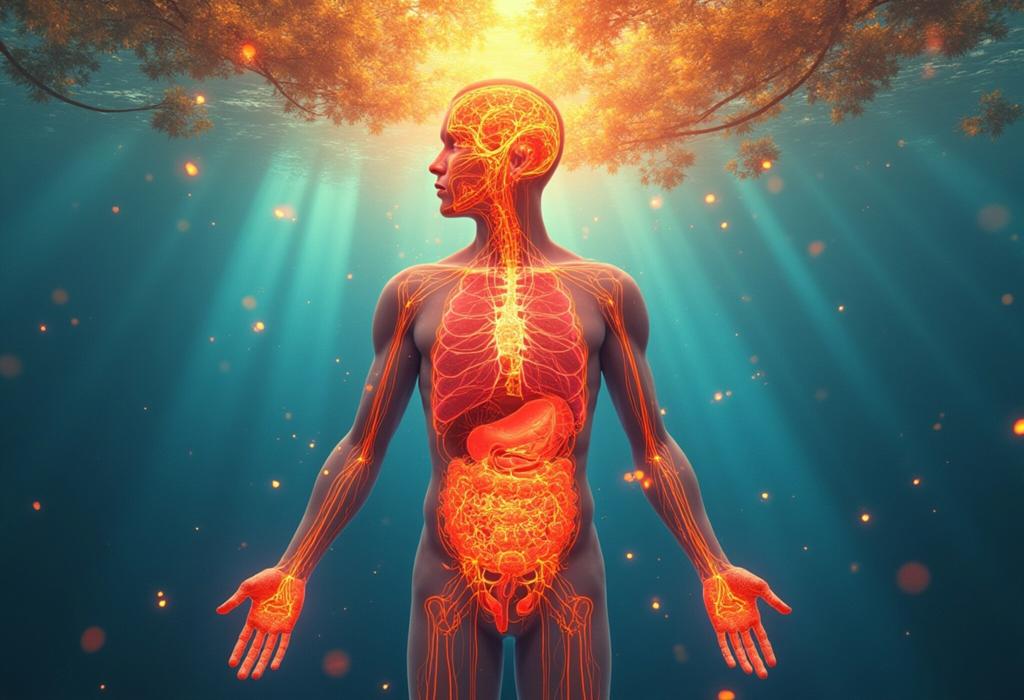For more details on this content, please review the step-by-step guide and frequently asked questions.
The Hidden Impact of Stress on Your Body

Step-by-Step Guide
Introduction to Stress
Stress is a natural response of the body to perceived threats, known as stressors. It triggers the 'fight or flight' response, activating the adrenal glands to release hormones like adrenaline and cortisol.
Types of Stress
There are two main types of stress: acute stress, which is short-term and often related to immediate challenges, and chronic stress, which persists over a longer period and can be physically and mentally debilitating.
How Stress Affects Your Body
Chronic stress affects multiple body systems, leading to various health issues. It can trigger digestive issues, weaken the immune system, and increase blood pressure, among other physical problems.
Stress and the Cardiovascular System
Long-term stress can contribute to heart problems. It raises heart rate and blood pressure, increasing risks for heart disease, strokes, and other cardiovascular complications.
Impacts on the Digestive System
Stress can cause a range of gastrointestinal issues by changing how your brain communicates with your gut, leading to problems such as ulcers, irritable bowel syndrome (IBS), and other digestive disorders.
Hormonal Reactions to Stress
Stress affects the endocrine system, disrupting hormone levels. Prolonged stress can cause imbalances that contribute to weight gain, especially around the abdomen due to cortisol's effects on hunger.
Mental Health and Stress Connection
Chronic stress is linked to the development or worsening of mental health conditions such as anxiety, depression, and PTSD. It's vital to recognize and address stress to maintain emotional well-being.
Behavioral Changes Due to Stress
Stress can lead to changes in behavior, like increased substance use, reduced physical activity, and social withdrawal. Recognizing these changes is essential for reversing stress's impact on your life.
The Importance of Stress Management
Effective stress management techniques, such as mindfulness, exercise, and proper sleep, can mitigate the negative physical effects of stress, helping restore balance in your body and mind.
Implementing Stress Reduction Techniques
Start incorporating stress reduction methods into your daily routine, such as practicing yoga, meditating, or engaging in hobbies that you enjoy to promote relaxation and well-being.
Seeking Professional Help
If stress becomes overwhelming, consider seeking help from healthcare professionals. Therapy, counseling, and support groups can provide essential tools for managing stress effectively.
The Role of Nutrition in Stress Management
A balanced diet rich in fruits, vegetables, whole grains, and lean proteins can support overall health and help buffer the effects of stress on the body.
Connecting with Support Networks
Building a strong support network of friends, family, or colleagues can provide emotional support during stressful times, helping to reduce feelings of isolation and anxiety.
Monitoring Your Stress Levels
Regularly assess your stress levels and identify triggers. Keeping a journal can be a good practice to recognize patterns and responses to stress, aiding proactive management.
Long-term Benefits of Managing Stress
Effectively managing stress can lead to long-term health benefits, including reduced risk of chronic diseases, improved emotional well-being, and a better quality of life overall.








